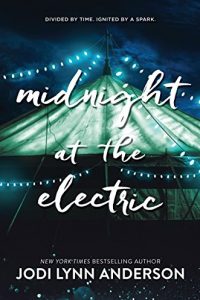Paul Di Filippo reviews Eric Lundgren
 There is a type of fantastical literature in which the commonplace laws of the universe are never contravened or violated—gravity does not reverse, no elves appear, time does not stutter—and yet such books still present as utterly outré. Of course, the Ur-example is Peake’s Gormenghast trilogy. Readers familiar with that masterpiece will recognize that the weirdness arises from warped human customs, odd human characters, and bizarre and anomalous settings. Occasionally, such books might venture a tad into the future, with some stefnal trappings. I’m thinking of Marc Laidlaw’s Dad’s Nuke or David Bowman’s Bunny Modern. Sometimes, in not exactly a steampunk fashion (for steampunk to large degree does rely on outright fantasy), this type of novel explores the past. Consider Thomas McMahon’s Loving Little Egypt or Ned Beauman’s Boxer, Beetle. But generally these novels inhabit the present, which they derange delightfully. Observatory Mansions by Edward Carey is one such, or Patrick McGrath’s Spider. Early Ian McEwan, Shirley Jackson, lots of late-period J. G. Ballard—the list is long and majestic.
There is a type of fantastical literature in which the commonplace laws of the universe are never contravened or violated—gravity does not reverse, no elves appear, time does not stutter—and yet such books still present as utterly outré. Of course, the Ur-example is Peake’s Gormenghast trilogy. Readers familiar with that masterpiece will recognize that the weirdness arises from warped human customs, odd human characters, and bizarre and anomalous settings. Occasionally, such books might venture a tad into the future, with some stefnal trappings. I’m thinking of Marc Laidlaw’s Dad’s Nuke or David Bowman’s Bunny Modern. Sometimes, in not exactly a steampunk fashion (for steampunk to large degree does rely on outright fantasy), this type of novel explores the past. Consider Thomas McMahon’s Loving Little Egypt or Ned Beauman’s Boxer, Beetle. But generally these novels inhabit the present, which they derange delightfully. Observatory Mansions by Edward Carey is one such, or Patrick McGrath’s Spider. Early Ian McEwan, Shirley Jackson, lots of late-period J. G. Ballard—the list is long and majestic.
I guess we can just call them slipstream, although that useful term of Bruce Sterling’s invention has never quite caught fire, and covers wider territory than our remit today.
In any case, whatever one dubs this kind of book, I find them delightful and invigorating. They discard genre trappings and clichés in favor of originality, and allow or even force the reader to regard his or her humdrum existence in new surreal lights. They take Pound’s dictum of “Make it new” and alter it to say “Make it weird”—but without resorting to New Crobuzon extremes.
Our latest entry in this vein arrives as the accomplished and engaging debut novel of Eric Lundgren, and it basically conflates the absurdist doings of a typical George Saunders story with the homegrown Midwest eccentric ambiance of Garrison Keillor’s Lake Woebegone—except that Lundgren’s venue of Trude is not a village but a medium-sized city.
Our hero and narrator is one Sven Norberg, and he opens the book most arrestingly: “I used to drive downtown every night, looking for my wife.” This sentence instantly sets the template for the book: prosaic yet odd, declarative yet mysterious, mundane yet poetic. Lundgren’s prose—Norberg’s voice—will soar to greater, more elegant apercus and insights and descriptive flourishes, cleverly crafted by Lundgren, but at heart Sven will remain basically a more sad-sack Garrison Keillor.
Sven lives in the decaying Midwestern city of Trude, a place that is as much a character as any human in the book. (More on Trude in a minute.) His wife, Molly, was the star of the Trude opera company, until she disappeared one night in May. Kidnapped, dead, amnesiac, a runaway? No one knows, and the central mystery and dilemma impel Sven’s next year of miserable, semi-inept actions. But in between Sven’s quasi-parodic sleuthing, we get to inhabit the itchy union suit of his life, all the unsatisfying and mistimed and abortive interactions of his existence. The cast of players is extensive and utterly vivid: his disaffected teenaged son Kyle; his serendipitous bakery-clerk lover, Plea (short for Pleiades); his megalomaniacal boss, the lawyer Boggs; his senile Mom; the insane (or ultra-sane) memoirist Vollstrom; two cops named McCready and the Oracle; a radical librarian author, Cassandra Clark; newspaper critic Martin Breeze; and, most centrally and enigmatically, a dead man, the architect Klaus Bernhard, the designer of many of Trude’s landmarks. As Sven navigates through the venues afforded him by the city’s strange geography, we unravel his whole backstory, and reach a resonant ending which, if it does not precisely solve all the mysteries, affirms the validity of his quest.
Now, back to the city itself. Lundgren’s conception of Trude is fully on a level with work done by such experts of this stripe as Jonathan Lethem, Charles Finney and Mark Helprin. What I kept flashing on during my enjoyment of his creation was the work of Ben Katchor, whose recent Hand-Drying in America shares the same sensibility and affinity for off-kilter civic excrescences.
Trude is a city that features a shopping mall shaped like a spiral, with a labyrinth at the inner end. It offers a sanatorium-cum-hospital-cum-assisted living facility that promotes memoir-writing as therapy and awards grades of accommodations (special suites named after German authors) based on narrative ability. Special long-term inmates wear pink robes and are dubbed “Pinkies.” The mayor of Trude, in a fit of cost-cutting, has begun shutting down libraries. But the defiant librarians have congregated in their last redoubt, the central branch, and turned it into an armed fortress. The streets of Trude eschew right-angle intersections. All of this is described in deadpan admiration by Sven, who finds himself a Sinclair-Lewis Babbit by default. “[The Arcadia Pavilion] was formed from the skeletal remains of century-old fairground arcades and was surrounded by the busts of romantic composers set on high poles, as if they were criminals who had been impaled there.” In the end, there can be no greater fit than that between Sven and his hometown, which becomes a projection of his existential quandary.
One blurber for this wry, melancholy novel deems it to resemble a David Lynch film. Close, but no cigar. Lundgren’s accomplishment calls out for Coen Brothers treatment all the way.








